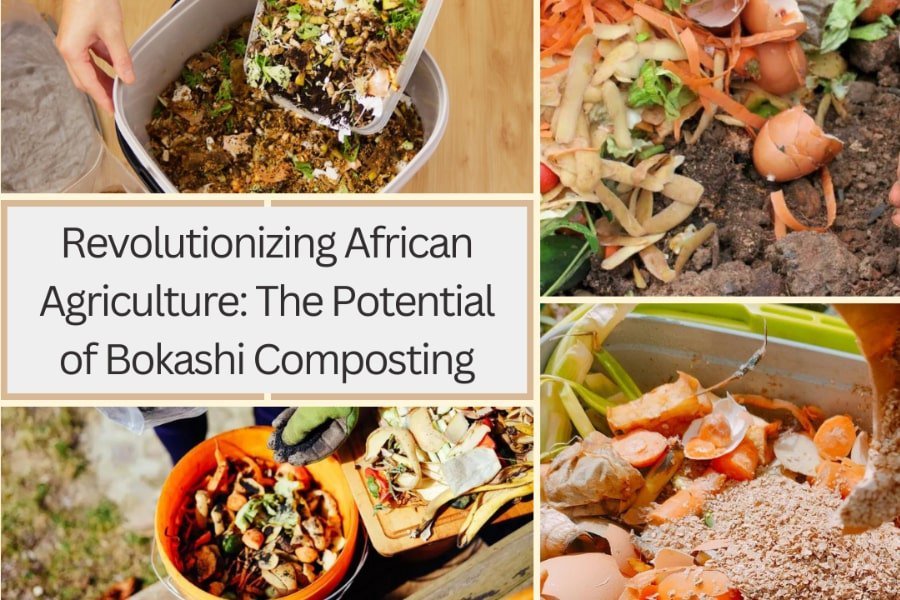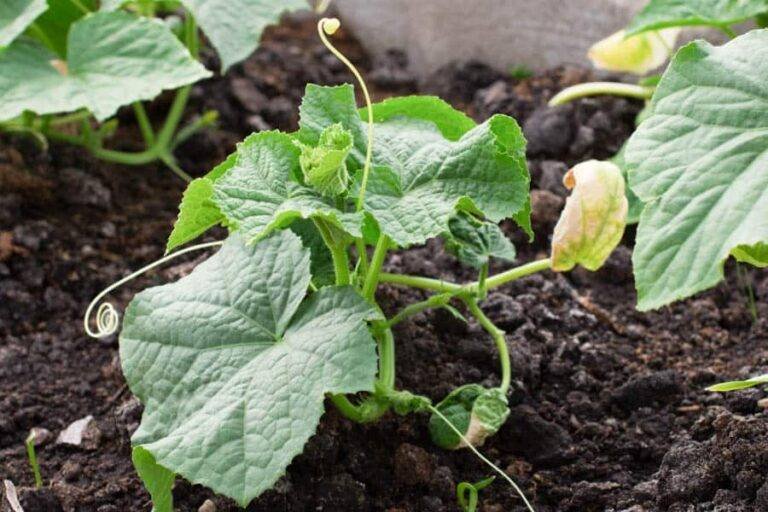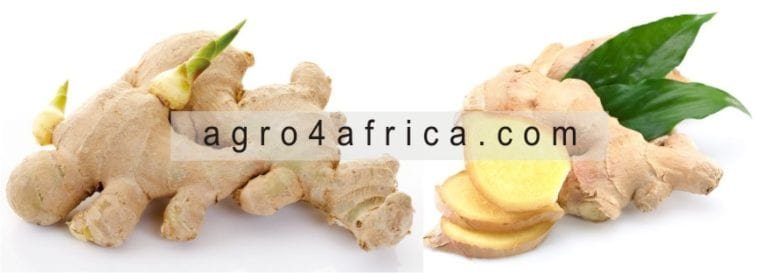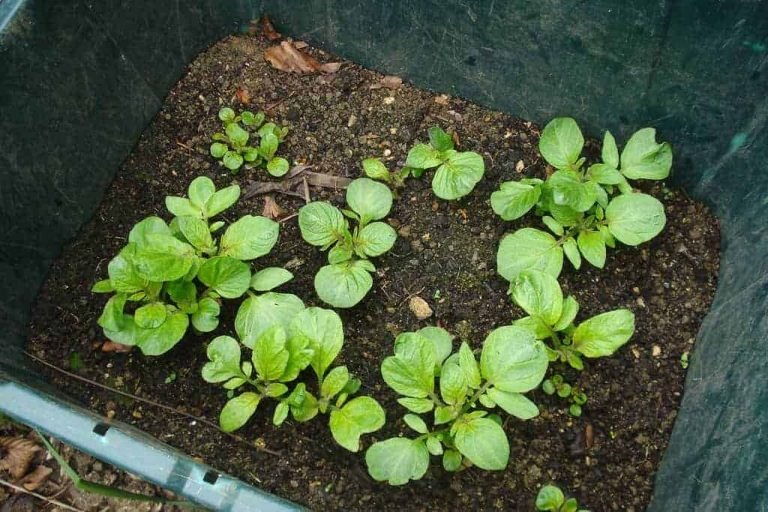Revolutionizing African Agriculture: The Potential of Bokashi Composting

Bokashi composting isn’t just another composting method; it’s an emblem of efficient food waste management that stands apart from the rest. Originating from the Land of the Rising Sun – Japan, the term “Bokashi” paints a vivid picture as it translates to “fermented organic matter.”
And in our contemporary world, where waste has become an almost insurmountable issue, one might ponder: In a world drowning in waste, could Bokashi offer a sustainable solution?
What Makes Bokashi Distinctive?
While traditional composting involves a breakdown of organic materials in the presence of air, Bokashi composting takes a different route. It is an anaerobic process, meaning it takes place in the absence of oxygen.
This unique fermentation method not only sets Bokashi apart but also grants it several advantages over its counterparts. Central to this process are the effective microorganisms, tiny heroes that initiate and drive fermentation. Working synergistically with these microbes is a substrate, often wheat bran, that acts as their home and food source, thereby accelerating the fermentation of food waste.
Related: Raised Bed Vegetable Gardening For Beginners – (Latest Tips)
The Birth of Bokashi: A Glimpse into its History
The Bokashi method didn’t just sprout overnight. It owes its existence to the tireless efforts of Dr. Teuro Higa, who introduced this method in the early 1980s in Japan. But while the method might seem modern, its roots run deep.
Bokashi draws inspiration from ancient Asian agricultural traditions that revered and utilized indigenous microorganisms. These age-old practices, combined with Dr. Higa’s innovations, have bestowed upon us a composting technique that’s both effective and in harmony with nature’s rhythm.
Materials You’ll Need to Begin
- Bokashi Bin: This isn’t your typical compost bin. The Bokashi Bin is designed to be completely airtight, ensuring that the composting process remains anaerobic (oxygen-free). Additionally, a tap is conveniently placed at the bottom, allowing for the easy drainage of the nutritious “bokashi tea.”
- Bokashi Bran: Think of this as the magical ingredient. This is wheat bran that has been inoculated with beneficial microbes – the workers that drive the fermentation process, turning your waste into a garden goldmine.
- Kitchen Waste: The beauty of Bokashi composting is its versatility. You’re not limited to fruit and veggie scraps. Bokashi bravely handles a wider palette – including meat, dairy, and even those leftover cooked foods you never got around to eating.
The Bokashi Composting Process: A Step-by-Step Guide
- Collection of Kitchen Waste: Before you begin, gather your kitchen waste. Remember, variety is the spice of life – and Bokashi loves variety!
- Layering: Start adding your kitchen waste to the bin, layer by layer. After each layer, sprinkle a generous amount of Bokashi bran. Think of it like making a lasagna – layers of food waste, followed by layers of bran.
- Compression: Air is the enemy here! Once you’ve added your waste and bran, compress the mixture. This will ensure that air pockets are eliminated, keeping the process strictly anaerobic.
- Drain the Gold: Every couple of days, remember to use the tap to drain the “bokashi tea.” This nutrient-rich liquid is a powerhouse for plants. Diluted, it makes a fantastic liquid fertilizer.
- Seal and Wait: Patience is key. After filling and compressing, seal the bin tightly. Now, let nature and those beneficial microbes do their job. The fermentation process will take about two weeks.
- Transitioning the Treasure: Once the fermentation is complete, you’re left with a fermented waste product. Introduce this to your garden soil or mix it into a traditional compost pile, where it will further decompose and enrich the medium.
Related; Urban Farming: 4 Easy Steps to Start and Maintain a Garden in the City

Bokashi Benefits: Why Choose Fermentation Over Decomposition?
- Versatility in Waste Management: Unlike traditional composting, which can be picky about what goes in, Bokashi stands out with its open-arms approach. Meat, dairy, cooked foods – bring them on! This method breaks barriers, allowing you to compost a wider variety of kitchen scraps.
- Speedy Results: We live in a fast-paced world, and waiting months for compost might not be everyone’s cup of tea. Bokashi speeds up the process. In just about two weeks, you have fermented waste that’s ready to be integrated into soil or a traditional compost pile.
- Odour Control & Space Efficiency: Living in tight spaces with no room for sprawling compost heaps? Bokashi’s got you covered. The airtight bins and anaerobic process mean fewer odors. Plus, its compact design is perfect for apartments and smaller homes.
- Nutrient-Rich Outputs: Bokashi doesn’t just give back; it gives back in abundance. The end product is a nutrient-dense compost that your plants will love. And let’s not forget the “bokashi tea,” a potent liquid fertilizer that can be drained off and used to give your plants a boost.
Potential Challenges with Bokashi
- Double Bin Duty: To keep the Bokashi train running smoothly, it’s advisable to have two bins. While one is fermenting, you can start filling the other with fresh waste. While this ensures continuity, it might require a bit more space and investment upfront.
- Smelly Situations: Bokashi is designed to be relatively odor-free. However, if the process goes awry – perhaps due to exposure to air or not enough bran – things can get a bit stinky. Regular maintenance and ensuring the bin is airtight can help avoid these smelly mishaps.
- The Waiting Game Continues: While Bokashi gives you fermented waste in about two weeks, it’s not the final product. This “pre-compost” needs to be integrated into a traditional compost pile or buried in the garden to fully transform into compost. It requires that extra step before you can sprinkle it around your plants.
Related: Top 15 Easy Vegetables to Grow all Year Round in Pots
Comparing Bokashi to Traditional Composting Methods
- The Process At its core, Bokashi relies on fermentation, a controlled process where beneficial microbes break down organic material in the absence of air. Traditional composting, on the other hand, is all about decomposition, where organic matter breaks down naturally, exposed to air, and using a balanced mix of green and brown materials.
- Cost Implications: Starting a Bokashi system may have slightly higher upfront costs. You’ll need a specially designed bin and a supply of Bokashi bran. Traditional composting can often be initiated with a simple heap or DIY bin, making the initial setup potentially cheaper.
- The Waiting Game: Bokashi might give you fermented waste in two weeks, but remember, this isn’t the end. It needs an additional step before it’s ready to enrich your garden. Traditional composting might take longer (months, in fact), but what you get at the end is finished compost.
- Simplicity & Volume: Here’s the scoop – traditional composting is straightforward. You add waste, turn it occasionally, and wait. It’s also better suited for larger volumes of waste. This might be why some gardening enthusiasts, especially those with larger gardens or more waste to process, still lean towards the traditional route.
Want to know why some still opt for traditional composting?
At the heart of it lies the allure of simplicity and the ability to handle larger waste volumes. It’s like choosing between a classic home-cooked meal and a fancy new fusion dish; both have merits.
Concluding Thoughts
The world of composting is vast, with Bokashi emerging as a star player, especially for urban dwellers or those with spatial constraints. Its unique approach to food waste management not only diverts waste from landfills but also rewards us with rich, fertile enhancers for our gardens. In this age of environmental consciousness, every bit helps.
Actionable Step: If you’ve been pondering how to make your gardening more sustainable or looking for efficient kitchen waste management, Bokashi might be the answer. Remember, it’s not just about turning waste into wealth, but also about playing a small yet significant role in saving our planet.
And to end on a light note: Fancy pickling your waste for a greener planet? Give Bokashi a try!





